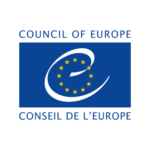Study on the Impact of Digital Transformation on Democracy and Good Governance
Year of production: 2021
Cover of the Study on the Impact of Digital Transformation on Democracy and Good Governance
The Study on the Impact of Digital Transformation on Democracy and Good Governance explores the impact of digital transformation on democracy and good governance in the light of the 12 Principles of Good Democratic Governance, highlight ing risks and opportunities, mitigating and enabling factors, and providing examples drawn from the experience of Council of Europe member States.
Digital transformation is also affecting the political and civil society landscape. New actors of democracy have emerged while traditional actors have adapted to new ways of campaigning and spreading their message, with some political parties having recourse to microtargeting in political campaigns. The report expresses concern at the lack of transparency and accountability around the way political ads are run and financed and calls for more research and better access to data to fully understand the impact of microtargeting on the formation of public opinion.
The Study is exploring the impact of digital transformation, including artificial intelligence and automated decision-making, on democracy and good governance, was also intended to contributing to the work of the Ad Hoc Committee on Artificial Intelligence (CAHAI). CAHAI is an ad hoc intergovernmental structure that has been set up to examine the feasibilit y and potential elements of a legal framework for the development, design and application of artificial intelligence, based on Council of Europe standards in the field of human rights, democracy and the rule of law.





